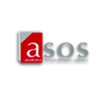Research Article
Aim & Scope
Journal of Knowledge Economy and Management (BEYDER) is an international peer-reviewed journal published electronically twice a year since 2006. The journal publishes original articles in economics, business and other related fields, primarily Knowledge Economy and Knowledge Management. Applied research papers are supposed to evaluate relationships among variables pertinent to primarily knowledge economics and knowledge management. The aim is to submit research and analysis articles on the production, dissemination, dissemination and extraction of knowledge economy and knowledge management, as well as the papers selected from the International Knowledge, Economy and Management Congress, through the peer review process, to the service of the relevant data.
JKEM TOPICS
The Knowledge Economy
Knowledge Economics and Knowledge-Based Economies
Human Capital & Economic Growth
Information and Communication Technologies
R&D and Innovation
Economics of Technology and Innovation
Digital Economy and Monetary-Fiscal Policies
Global Economic Crises & the Knowledge Economy
Knowledge Management & E-Business
Knowledge Management and Its Applications
Information and Document Management
Data Mining and Content Management
E- Human Resources Management
E-Business and Its Applications
E-Finance and Banking
Knowledge Society
Knowledge, Power and Government
The Value and Sharing of Knowledge
Knowledge Society and Public Administration
Working in the Knowledge Society
Energy and Security in the Knowledge Society
Media and Communication in Knowledge Society
Social Media and Social Impacts
E-Government / Trade
E-Government and Applications
E-Governance and Knowledge Cities
E-Municipality and Information Systems
E-Learning and Distance Education
E-Commerce and Applications
Electronic Crimes and Punishments
Other Topics
Higher Education and Universities
Institutionalization and History of Knowledge
Sources of Knowledge and Philosophy of Knowledge
Globalization and Critical Approaches
Other Relevant Issues
Author Guidelines
Peer Review Policy
Articles sent to BEYDER must have been sent to any journal for publication. Articles that are pre-examined by the editorial are sent to the referees by removing the names of the authors from the text with the double blind peer-review system. The editorship does not guarantee the publication of the articles sent to the journal and does not accept the scientific, administrative and financial responsibility of the opinions in the articles. The editorship can check for plagiarism when it deems necessary.
Peer Review Process
Manuscripts approved by all authors and not previously published in another journal or under evaluation for publication in another are accepted for consideration.
The Turnitin software is used for plagiarism scanning of manuscripts that pass the preliminary evaluation. After the plagiarism check, the acceptable ones are assessed by the editor in terms of their originality, methodologies, importance of the subject covered in the article, and suitability for the scope of the journal.
If the submitted article complies with the formal principles, the article received is submitted to the evaluation of at least two referees from the country and/or abroad by the editor, and the double-blind refereeing system is applied.
Reviewers must submit their evaluations within the time specified by the editor. Authors can suggest qualified independent referees.
If the referees consider it necessary, they may request changes (minor-major revision) in the manuscript. In this case, the authors must revise the article according to the explanations specified within the period determined by the editors or make a reasonable explanation to ignore some explanations. The referee may want to see the article again after revision.
Reviewers are required to keep all information about the articles submitted for their consideration discreet until the piece is published. They are also required to notify the editor immediately if they discover any plagiarism or copyright infringement in the article.
A reviewer should inform the editor and withdraw from the review process if they feel unqualified to discuss the subject of a manuscript or believe it will be hard to do at the given assessment time.
The editorial board and reviewers are prohibited from discussing the papers with anybody else. It's crucial that the referees remain anonymous.
The decision-making authority for selecting or rejecting submissions of all papers submitted to the Journal for study, review, or similar purposes is the Editorial Board. There should be no additional comments or messages from authors regarding the Editorial Board's decision, which is final in all aspects.
It should be noted that the aforementioned policy is subject to change, with or without prior notice to the journal's writers and contributors.
Writing Guidelines:
a. The title should be printed in capital and bold letters, and should be centered in a 14-point size. The author(s) and affiliation(s) should be flush right, single-spaced, and typed beginning on the second line below the title using 12- point type.
b. All papers should begin with an abstract of 300 words or less. The abstract should be single-spaced. Type size should be 10 point. Every article should include two keywords minimum.
c. The titles such as Dr. or Professor, the institution's name and country, and the email address will be written respectively in the footnote. Additional authors and affiliations should be stacked under the first with no space between.
d. The base font should be set to Times New Roman in a 12-point size. Type size of the tables, footnotes should be 10 points. The letters and the graphics and the tables should be non-coloured.
e. You must use Microsoft Word 6.0 or higher (PC version) and the text should be full justified. Margins of the A 4 paper should be set at 1,25 cm top and bottom, and 2,5 cm right and left.
f. Single space the body of the paper and between paragraphs.
g. Citations in the text should list the author's last name, comma, and publication date, and the page number, all enclosed by parentheses, i.e., (Yumusak-Erarslan, 2005: 520).
h. The first letters of the headings should be in capital letters and the headings should be in boldface. They should be numbered as 1, 1.1., 1.2.1., and so on.
Ethical Principles and Publication Policy
Publication Ethics Statement
The Journal of Knowledge Economy and Management's publication processes are based on the scientific method of producing, developing, and sharing information in an objective and respectful manner. The Journal of Knowledge Economy and Management takes publication ethics very seriously and adheres to the highest standards. The journal follows the ethical publishing principles established by the Committee on Publication Ethics (COPE), the Directory of Open Access Journals (DOAJ), the Open Access Scholarly Publishers Association (OASPA), and the World Association of Medical Editors (WAME), and conducts its operations in accordance with these guidelines. Articles submitted to the Journal of Knowledge Economy and Management must be original, previously unpublished, and not currently under review in another journal. Before submitting their article to the journal, each author in the submitted articles must have approved the content and submission. Due to publication ethics, once an article is submitted to the Journal of Knowledge Economy and Management for publication, the names of the article authors cannot be removed from the list of authors, a new name cannot be added as an author to the relevant article, and the order of authors cannot be changed without the written consent of all authors in the relevant article. Plagiarism, fake authorship, duplication, article slicing, copyright infringement and concealment of conflict of interest are unethical behaviors. Articles that are found to be unethical are not allowed to be published in the journal and are removed from the publication list. Peer-reviewed articles are studies that are based on and support the scientific method. Scientific journals evaluate and control the science produced in the articles within the framework of scientific ethics and publication ethics. At this point, it is very important that all stakeholders (authors, readers and researchers, publishers, reviewers and editors) comply with ethical principles in journal processes and publication processes. The Journal of Knowledge Economy and Management expects all the above-mentioned stakeholders to bear ethical responsibilities within the scope of publication ethics and to comply with the rules of publication ethics.
Ethical Responsibilities of Authors
The authors declare the accuracy of all information provided during the article's submission to the Journal of Knowledge Economy and Management, and make no misleading, incorrect, or incomplete statements. The authors are responsible for ensuring that their articles follow scientific and ethical guidelines. The author(s) who submit articles to the Journal of Knowledge Economy and Management are expected to comply with the following ethical responsibilities:
-The author(s) are expected to submit original articles. If the author(s) benefit from other works, they are required to cite completely and accurately.
-All authors must have direct academic and scientific contributions to the submitted article. Persons who do not contribute intellectually to the article's content should not be identified as the author.
-All articles submitted for publication should disclose any situations or relationships that could create a conflict of interest. In applications with multiple authors, all authors must agree on issues such as authorship order.
-Raw data regarding their articles can be requested from the author(s) within the framework of the evaluation processes. The author(s) should be prepared to present the expected data and information to the editorial board.
-Author(s) must have the document(s) proving that they have the right to use the data, the necessary permissions for the research/analysis, or the experimental subjects' consent. If the article submitted to the journal by the author(s) includes research that requires "Ethics Committee Approval Certificate," the relevant document should be obtained before beginning the research and submitted to the journal management.
-In the case that the author(s) notices an error or error regarding their articles at early appearance or evaluation process, they must cooperate with the journal's editor or publisher to inform, correct, or withdraw the articles.
-Duplication, slicing, fabrication, forgery, distortion, republishing, and other ethical violations must be avoided by authors. In such cases, the responsibility belongs to the author(s).
-Authors are not permitted to submit their articles to more than one journal at the same time. Each application can be started after the previous one has been completed. An article that has already been published in another journal cannot be submitted to the Journal of Knowledge Economy and Management.
Ethical Responsibilities of Editors
-Editors must evaluate articles submitted to the Journal of Knowledge Economy and Management regardless of the authors' ethnic origin, gender, sexual orientation, nationality, religious belief, or political philosophy. Editors ensure that each work is evaluated fairly, impartially, and on time. Editors ensure that articles submitted to the journal undergo fair double-blind peer-review. Editors guarantee that all information regarding the articles submitted to the journal will remain confidential until the article is published.
-Editors are accountable for every article published in the journal, ensuring that it adheres to journal publication policies and international standards.
-Editors are obliged to ensure the protection of personal data regarding the subjects or images included in the evaluated studies. Unless the explicit consent of the individuals used in the studies is documented, editors are responsible for rejecting the work. Furthermore, editors are responsible for protecting the personal information of authors, referees, and readers.
-Editors are responsible for ensuring the protection of human and animal rights in the evaluated articles. Editors are responsible for rejecting the study in the absence of ethical committee approval for the subjects used in the studies and permissions for experimental research.
-Editors are obliged to take precautions against possible abuse and misconduct. It is among the responsibilities of the editor to conduct a rigorous and objective investigation regarding the identification and evaluation of complaints regarding this situation.
-Editors should ensure that judgments in articles that contain errors, inconsistencies, or misdirection are promptly corrected.
-Editors must protect the intellectual property rights of all published articles and defend the rights of the journal and the author(s) in the event of a possible violation. In addition, the editors are obliged to take the necessary measures so that the contents of all published articles do not violate the intellectual property rights of other publications.
Ethical Responsibilities of Referees
Evaluation of all studies with "Blind Refereeing" directly affects the quality of the publication. This process provides assurance by evaluating the publication objectively and independently. The evaluation process of the Journal of Knowledge Economy and Management is carried out with the principle of double-blind refereeing. Referees can not directly communicate with authors, evaluations and comments are submitted through the journal management system. In this process, referees comments on evaluation forms and full texts are forwarded to the author(s) through the editor. In this context, it is expected that the referees evaluating articles for the Journal of Knowledge Economy and Management have the following ethical responsibilities:
-Referees should agree to evaluate only studies related to their area of expertise.
-Referees should evaluate articles with impartiality and confidentiality.
-If the referees think that they are facing a conflict of interest during the evaluation process, they should refuse to review the study and inform the journal editor.
-Referees should destroy the studies they have reviewed after the evaluation process in accordance with the principle of confidentiality.
-Referees must evaluate the study objectively only in terms of its content. Nationality, gender, religious beliefs, political beliefs and commercial concerns should not be allowed to influence the evaluation.
-Referees should provide constructive and courteous feedback. Referees are not permitted to make derogatory personal remarks such as hostility, slander, or insults.
-Referees must complete the work they accept to evaluate on time and in accordance with the aforementioned ethical responsibilities.
Ethical Responsibilities of Publisher
The publisher of the Journal of Knowledge Economy and Management, Prof. Dr. İbrahim Güran Yumuşak, acts with the awareness of the following ethical responsibilities:
-Editors are responsible for all processes of articles submitted to the Journal of Knowledge Economy and Management. In this context, the decision makers are the editors, regardless of economic or political gains.
-The publisher commits to making an objective editorial decision.
-The publisher is responsible for taking all precautions against scientific misconduct, citation hacking, and plagiarism in relation to the editors.
-The publisher is committed to providing open access to the journal. Therefore, it is deemed to have accepted the responsibility of making all parts of the published content permanently and freely accessible to academic world.
If you come across any unethical behavior or content in the Journal of Knowledge Economy and Management that is list or not listed above, please notify the journal@beykon.org via e-mail.
Journal Policy on Conflicts of Interest
-Authors must notify the journal/editor of any conflict of interest regarding the articles they have submitted.
-Authors should state that there is no conflict of interest that will affect the results or comments of the study, in the content of their articles or in an information form at the time of submission.
-Authors must declare financial relationships, conflicts of interest, and competition of interest that have the potential to affect the results of the research or scientific evaluation.
Protection of Intellectual Property Rights
Editors are obliged to protect the intellectual property rights of all published articles and to defend the rights of the journal and the author(s) in case of possible violations. In addition, the editors are obliged to take the necessary measures so that the contents of all published articles do not violate the intellectual property rights of other publications.
Ethical Oversight Policy
In the publication processes of the Journal of Knowledge Economy and Management, all stakeholders are expected to comply with the ethical rules specified here. Prof. Dr. Brahim Güran Yumuşak, the journal's publisher, and the editors are responsible for the journal's ethical oversight by conducting the necessary examinations and audits to ensure that the journal processes are carried out in accordance with ethical principles.
The Editorial Board of the journal focuses on the COPE definition of Ethical Oversight. Ethical oversight policy, as defined by COPE (Committee on Publication Ethics): “Ethical oversight should include, but is not limited to, policies on consent to publication, publication on vulnerable populations, ethical conduct of research using animals, ethical conduct of research using human subjects, handling confidential data and business/marketing practices”. Journal publishers and editors carry out their activities within the framework of ethical principles in accordance with and in accordance with this definition.
Journal Policies on Data Sharing and Reproducibility
The Journal of Knowledge Economy and Management believes in open and reproducible science.
The Journal of Knowledge Economy and Management's data sharing policy strongly advises that the data which authors create/use in their research be made available in accordance with the open science principle and shared in their articles in order to contribute to the scientific world. The Journal of Knowledge Economy and Management encourages authors to include publicly available research data in their reference lists.
Although data sharing is not mandatory in our journal, we reserve the right to request confidential access to the primary data required at any time to verify the reported results.
Journal Policy on Post-Publication Discussions and Corrections
If the author(s) discovers an error or mistake in his or her published, early appearance, or evaluation articles, they have an obligation to cooperate with the editor in informing, correcting, or withdrawing their articles.
The responsibility of a material error/inaccuracy found in a published article is the responsibility of the author(s). If such a problem arises, the author(s) are obliged to immediately notify the editors of the journal and cooperate with the editor to correct the error or withdraw the publication. If the editor(s) learn from a third party that the article contains a material error/inaccuracy, the authors are obliged to correct or withdraw the article immediately or to prove the accuracy of the study to the journal editors.
If there are any allegations of ethical violations related to an article published in the journal, the journal publisher/editor will follow the COPE (Committee on Publication Ethics) guidelines when handling these claims
Price Policy
Journal of Knowledge Economy and Knowledge Management (JKEM) is a self-funded journal that receives no outside funding. There are no subscription fees because the journal is Open Access. The content is freely available to readers via the journal's website.
No fee is charged from the authors during the submission and publication of the article.
The costs of journal production, online publication, editing, and web hosting, as well as the assignment of digital object identifiers (DOI) for each individual article, are covered by JKEM.
Copyright and Archiving
The Journal of Knowledge Economy and Management is an open-access journal, which implies that all content is available to individuals and their institutions for free. Without prior permission from the publisher or authors, users may read, download, copy, print, or link to the full text of papers in this journal. Authors allow JKEM permission to publish their work and identify themselves as the original publisher. The writers also permit any third party the right to freely use the paper as long as its integrity is preserved and the original authors, citation information, and publisher are identified. The Creative Commons Attribution License 4.0 formalizes these and other article publication terms and limitations.
JKEM publishes original manuscripts. Author(s) submitting a paper to The JKEM must not submit it to any other journal. Author(s) of an article published in The JKEM should ask the authorization of the Editorial Board to republish it elsewhere, in which case reference should be made to the JKEM.
This journal offers instant open access to its material under a CC BY-NC licence (Creative Commons Attribution-Non-Commercial 4.0 International Licence), on the premise that making research freely available to the public promotes better global knowledge exchange.
While the JKEM will consider all manuscripts received, the Editorial Board assumes no responsibility for their publication or return.
The JKEM assumes no responsibility for the contributors’ statements of fact or opinion. For the copyrights of the contributions published in the Journal of Knowledge Economy and Management see Creative Commons.
The journal's archive is free to access online at https:/dergipark.org.tr/tr/pub/beyder/archive. The publications published in this journal may be found online in DergiPark. The DergiPark system allows you to gather, maintain, and exhibit this access archive unit.
Indexes
Citation Indexes
Other Indexes
Journal Boards
Editorial Board












